Samir Amin
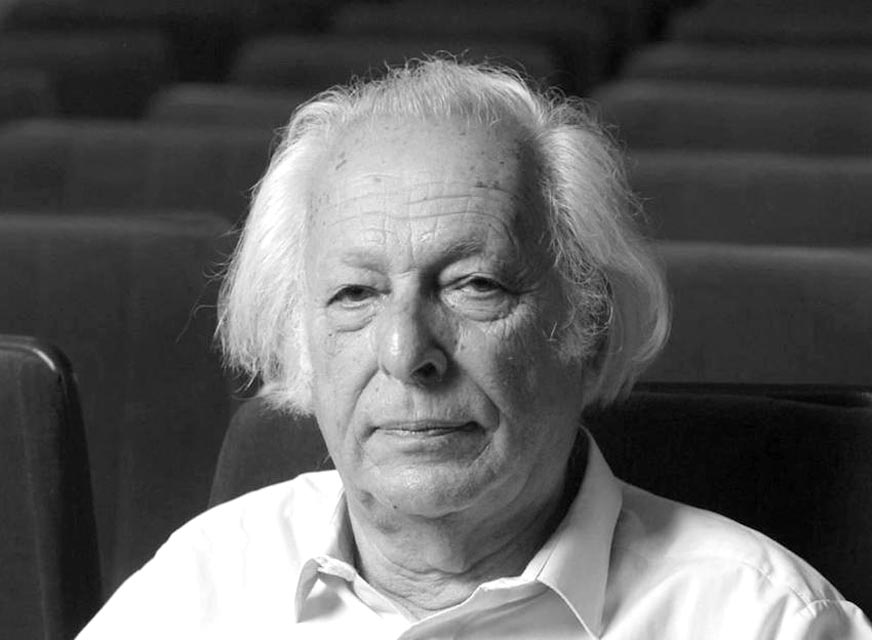
Samir Amin
Samir Amin was born in Cairo, the son of an Egyptian father and a French mother (both medical doctors). He spent his childhood and youth in Port Said; there he attended a French High School, leaving in 1947 with a Baccalauréat. From 1947 to 1957 he studied in Paris, gaining a diploma in political science (1952) before graduating in statistics (1956) and economics (1957). In his autobiography Itinéraire Intellectuel (1990) he wrote that in order to spend a substantial amount of time in "militant action" he could devote only a minimum of time to preparing for his university exams.
-
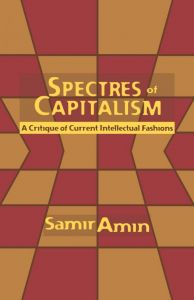 Spectres of CapitalismINR 295
Spectres of CapitalismINR 295Samir Amin, one of the most influential economists today, examines the changing notion of crisis in capitalism; misconceptions of the free market model; the various distortions of Marx's method; th...
-
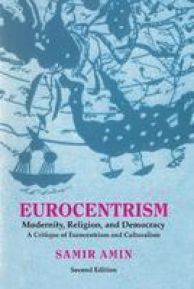 EurocentrismINR 550
EurocentrismINR 550Since its first publication twenty years ago, Eurocentrism has become a classic of radical thought. Written by one of the world's foremost political economists, this original and provocati...
-
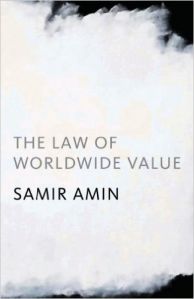 The Law of Worldwide ValueINR 250
The Law of Worldwide ValueINR 250In his new extensively revised and expanded edition of this book, Samir Amin suggests new approaches to Marxian analysis of the crisis of the late capitalist system of generalized, financialized, a...
-
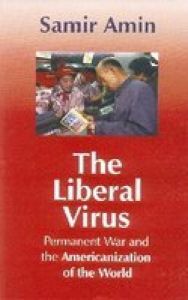 The Liberal VirusINR 325
The Liberal VirusINR 325Samir Amin\'s ambitious new book argues that the ongoing American project to dominate the world through military force has its roots in European liberalism, but has developed certain features of li...
-
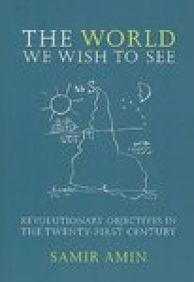 The World We Wish to SeeINR 325
The World We Wish to SeeINR 325The World We Wish to See presents a sweeping view of twentieth-century political history and a stirring appeal to take political culture seriously. Samir Amin offers a provocative analysis of ...
-
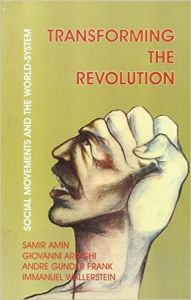 Transforming the RevolutionINR 325
Transforming the RevolutionINR 325While the authors' points of agreement are many, so are their points of divergence. In the final chapter, they outline both, and discuss the ways in which these movements are transforming the revol...
-
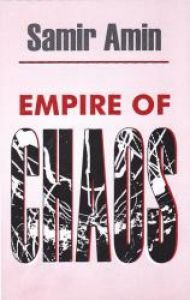 Empire of ChaosINR 225
Empire of ChaosINR 225In this provocative work, Amin argues that the people of the third and fourth worlds must build popular democracy and participatory socialism that is independent of global capital.
-
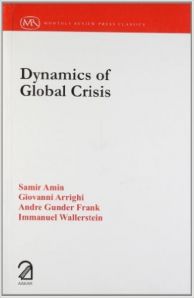 Dynamics of Global CrisisINR 395
Dynamics of Global CrisisINR 395Writing in 1982, four of the foremost theoreticians of the world economy set out their understanding of the long-term dynamics of global capitalism. Dismissing the still-existing Soviet Union as a ...
-
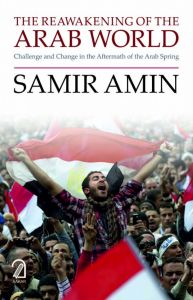 The Reawakening of the Arab WorldINR 495
The Reawakening of the Arab WorldINR 495According to renowned Marxist economist Samir Amin, the recent Arab Spring uprisings comprise an integral part of a massive "second awakening" of the Global South. From the self-immolation in Decem...
-
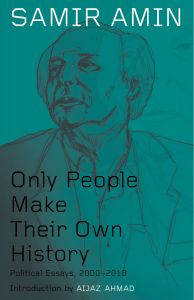 Only People Make Their Own HistoryINR 395
Only People Make Their Own HistoryINR 395Samir Amin's primary concern as an economist is the form that imperialism takes in the last hundred years – driven at first by capitalist monopolies and later by what he calls generalized monopol...

N. P. Fedorenko
N/A
Ashok Gopal
Ashok Gopal undertakes a mission without parallel: reading the bulk of Ambedkar’s writings, speeches and letters in Marathi and English, and what Ambedkar himself would have read. This is the sto

Kitty Hunter-Blair
Kitty Hunter-Blair taught Russian language and literature at Cambridge University for 20 years and is a trustee of London’s Pushkin House.
Andre Betteille
N/A
A.R. Venkatachalapathy
A.R. Venkatachalapathy, historian and Tamil writer, is a professor at the Madras Institute of Development Studies (MIDS), Chennai.

Madhu Trivedi
Madhu Trivedi teaches history in the School of Open Learning, University of Delhi. She is the author of The Making of the Awadh Culture. She has published several research articles on a variety of

Somasundara Rao
Somasundara Rao, Professor (Retd.), obtained an M.A. (History and Archaeology), M.A. (Hons.) and Ph.D. from Andhra University, Visakhapatnam, and specialized in the ancient and medieval history of
